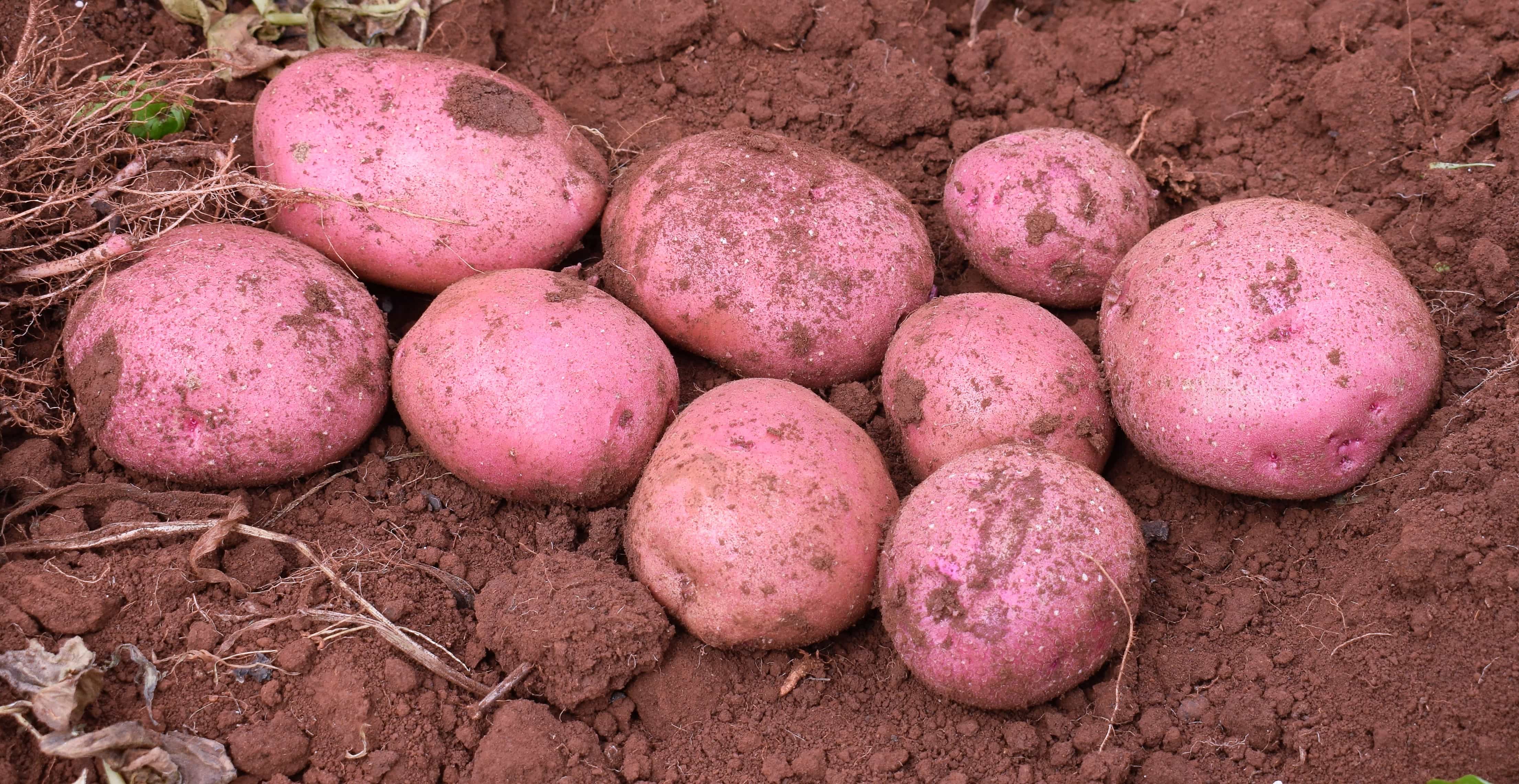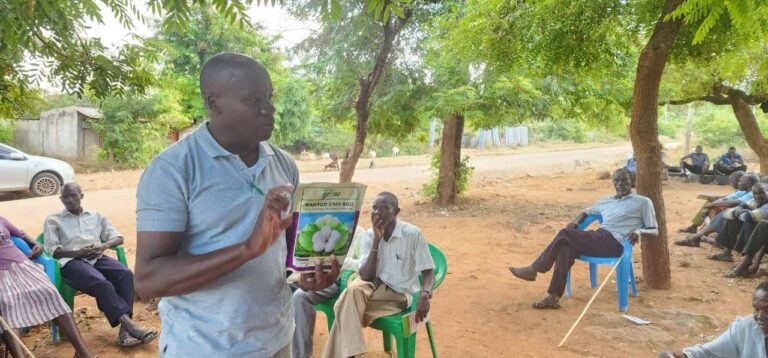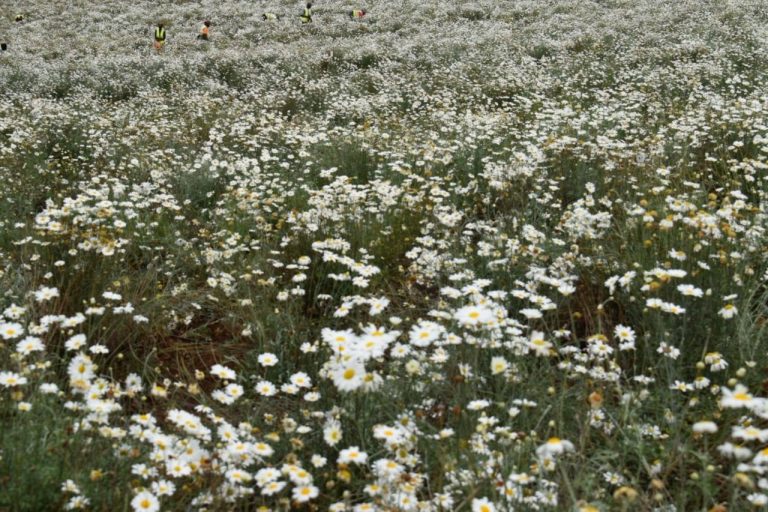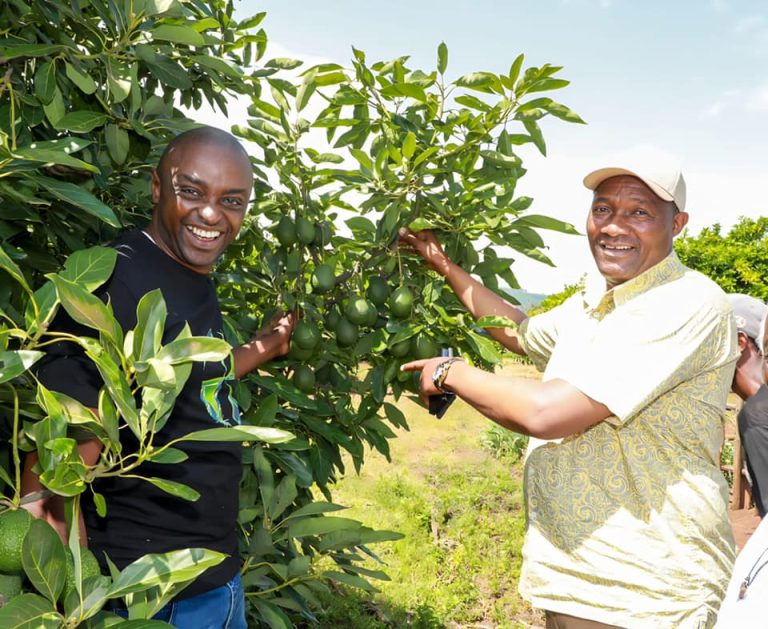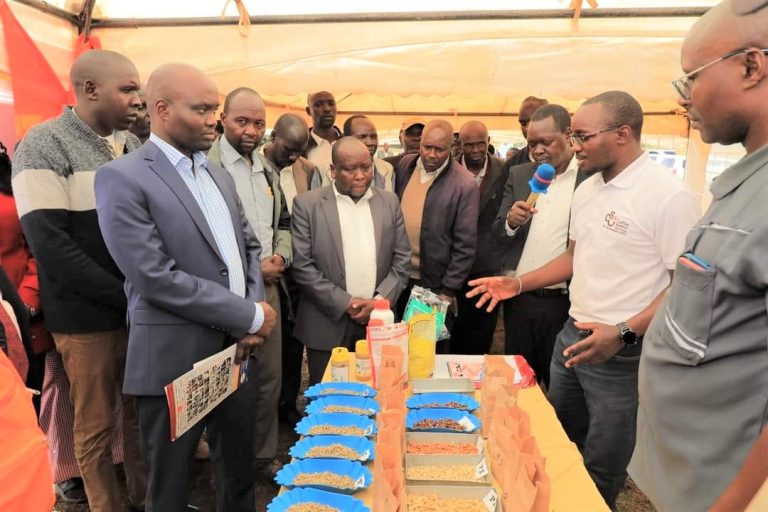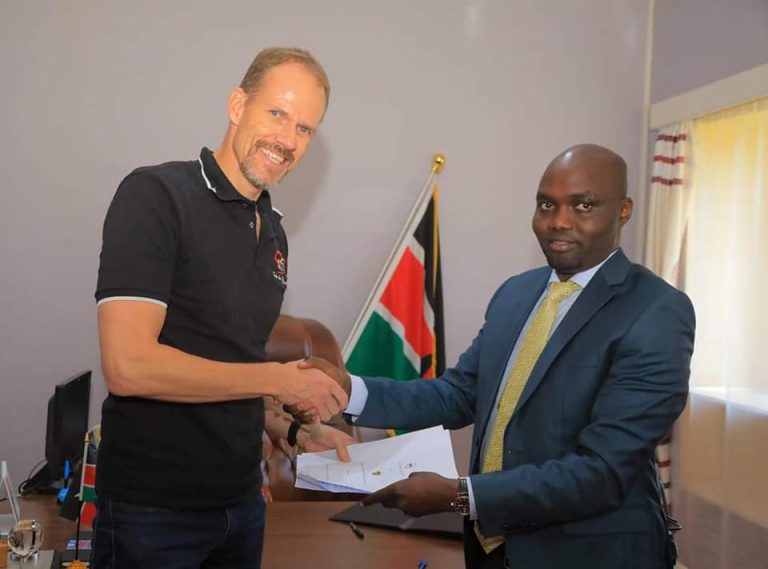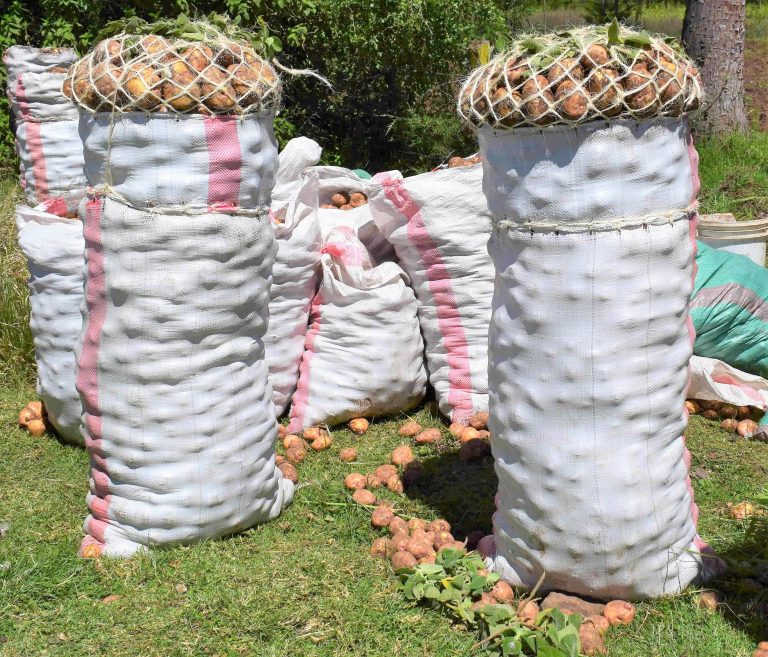Farmer groups in 14 potato producing wards in Elgeyo Marakwet County will receive potato seeds from the County Government in partnership with the Agriculture Sector Development Support Programme (ASDSP).
The 300 bags superior pre-basic and C2 seeds were sourced from Nakuru and Nyandarua counties in an initiative aimed at enabling County farmer groups to generate their own seeds for future seasons.
During the flagging off of the seeds, the Chief Officer Agriculture Timothy Kiptum said the shangi variety had been certified by the Kenya Plant Health Inspectorate Service (Kephis) and that every measure had been taken to ensure they were disease free. The seeds shall be distributed through the Elgeyo Marakwet Potato Cooperative Society. “As a County, we are encouraging our farmers to join cooperatives and take advantage of economies of scale as well as extension services from the County. Going forward, this is the model we shall work with,” he said.
The County Secretary Paul Chemmuttut appreciated the role played by ASDSP in partnership with the County in promotion of high value crops in the County. “By supporting our farmers produce their own seeds, we will ensure that in the near future, we shall be seed sufficient and we will not have to import seeds from other counties,” he said. He added that the County was in the process of setting up a potato seed multiplication centre at the County’s Chebara Agricultural Training Centre through support from the World Bank.
The ASDSP Coordinator Jane Tallam, said that as part of the seed multiplication plan, the farmer groups had set aside one acre each in all the 14 wards to ensure that the potato seeds are available for future seasons. “The second-generation C2 seeds we have brought are for purposes of training farmers on the best practices in potato growing,” she said. Tallam also said that the objective of the initiative is to reduce costs that go into outsourcing seeds which she said was both expensive and posed the risk of disease importation.


